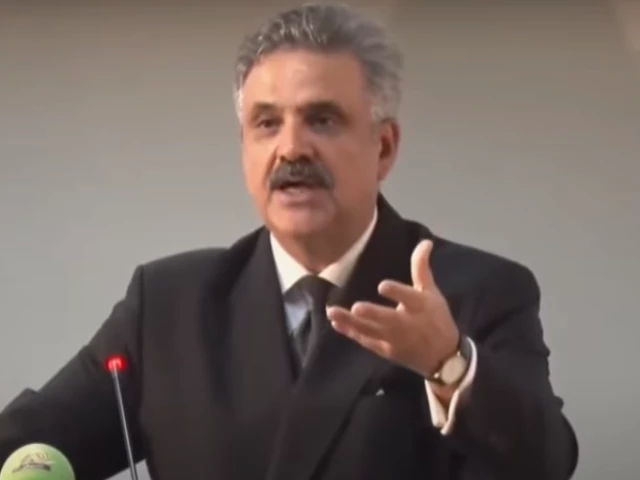Islamabad:
Chief Justice Yahya Afridi approached a space full of legal employees at the beginning of the new judicial year and not only highlighted the areas that need improvement but also the steps already taken by the Supreme Court, which are now formalized.
There was emphasis on digitalization and how to use the available technology to make the justice system even more efficient. Today’s order was how to make the judiciary more effective and to tackle the court’s “function” and the “administrative side” of things.
The top judge put forward five pillars that would integrate technology into the daily processes of the courts. The first was “to improve service delivery through technology – from less paper to paperless.”
He explained that the court in the past year slowly began to integrate steps, such as filing digital case, and that case files can now be transferred online and also fully traced. E-services such as e-affidavits and digital delivery of orders have been implemented. Messages will now be distributed through WhatsApp and SMS.
One of the focuses along with digitization and more of a reasoning was to make the court the court more accessible to the common citizen, which is what the other pillar addresses.
A hotline has been set up exclusively to give an anonymous and safe way for citizens to report events with various corrupt practices without having to fear the consequences of filing the complaint. Each report is traced and addressed within 30-60 days, depending on the nature of the complaint.
By contacting the financial aspect of the judiciary, it was announced that an external revision of judicial accounts from 2024-2025 was conducted by the Audit Department of the Pakistan Government. The result of this audit has reached the courts and the concerns raised.
The third pillar on the agenda was “to strengthen the legal and regulatory framework”, which refers to the steps that the court will take to exploit artificial intelligence. Most of these procedures were already practiced and advised, but now they will be shaped through the implementation of rules.
“Everyone talks about technology and artificial intelligence,” and therefore the 61,000 files are digitally scanned and the project ends in six months. Once the cases have been scanned, the use of AI will be implemented and used for tasks such as planning cases.
Chief Justice declared that the judges are not limited to traveling during vacations during judicial recovery, but for ordinary leave, the judges must inform the administration. These SOPs would further address the court’s rest houses and vehicles and the allocation of leave to judges.



